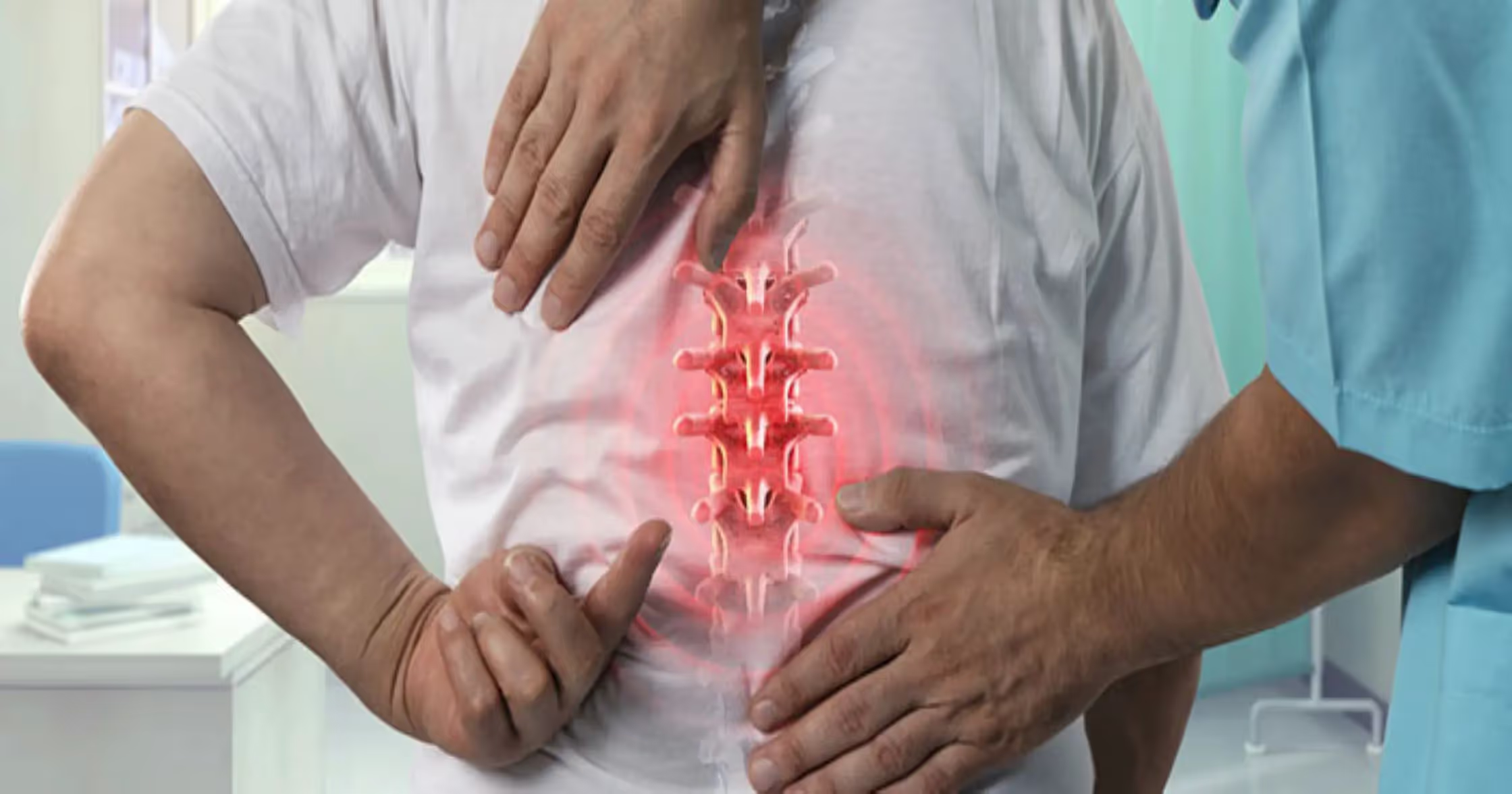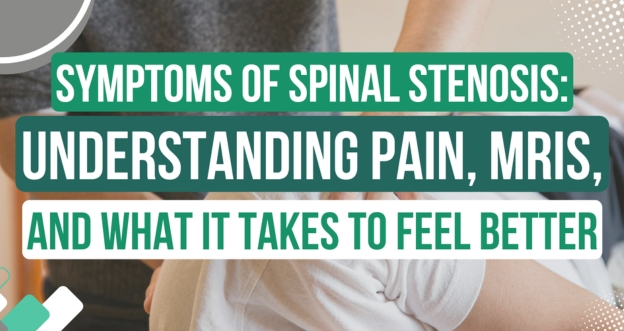
What is a Disc Herniation and Why Does it Happen?
Did you just get the results of your MRI and see that you have a herniated disc in your lower back? Before you totally freak out, let’s dive into exactly what that means and what happens when you have a disc herniation.
You may just find that it’s not as scary as all those technical words on the MRI report make it out to be.
What is a disc herniation?
Before we dive into exactly what a disc herniation is, let’s start with a mini anatomy lesson about what your disc is. Your disc is that rubbery cushion-like tissue that sits between your vertebrae.
When you have a herniated disc, it simply means that the disc or a piece of the disc is bulging out into your spinal canal and this part of the disc may get close to a nerve. This makes it so the nerve doesn’t have enough space to breathe and can cause pain or numbness and tingling into your leg.
However, it’s important to realize that disc herniations are seen in 22% to 67% of asymptomatic adults. People without pain or any symptoms!
So just because you have a disc herniation, that doesn’t mean you will have pain. Great news, right?!
There are different severities of disc herniation or disc bulging and they are described as follows:
- Disc Protrusion: Your inner disc is mildly bulging out into the spinal canal, but is still contained within the outer fibrous layer of the disc itself.
- Disc Extrusion: The inner part of your disc leaks out through the outer layer of the disc into the spinal canal, but is still attached to the disc itself.
- Sequestered Disc: Part of your disc gets dislodged and may become a free fragment that hangs out in the spinal canal.
What causes disc herniation?
Honestly, we’re not totally sure what causes disc herniation. Some research suggests genetics may play a role in your risk for herniating a disc.
What is most likely at the root of developing a disc herniation though is plain old structural changes in your body over time. As we age, our discs change and sometimes this means they are going to bulge or herniate.
Some people also theorize that disc herniation can occur as a result of doing an activity that your body wasn’t quite prepared for. This is why sometimes when someone bends forward and picks up a really heavy item after not having done something like this for years, it could possibly cause issues at their disc.
It’s important to note that you can herniate your disc with no specific cause. So don’t go modifying your life or activity in hopes that you will avoid a disc herniation.
If you only have mild back pain and no symptoms in your legs, you might be wondering if you need to do something to treat your herniated disc. To understand the next best step, check out my YouTube video where I go over what happens if you don't do anything about your back pain.
Want to know more?
If you’re currently dealing with a disc herniation or have a different type of low back pain that is slowing you down, make sure to subscribe to my blog so you can understand what your next steps should be.
Subscribe here!
References:
Did you just get the results of your MRI and see that you have a herniated disc in your lower back? Before you totally freak out, let’s dive into exactly what that means and what happens when you have a disc herniation.
You may just find that it’s not as scary as all those technical words on the MRI report make it out to be.
What is a disc herniation?
Before we dive into exactly what a disc herniation is, let’s start with a mini anatomy lesson about what your disc is. Your disc is that rubbery cushion-like tissue that sits between your vertebrae.
When you have a herniated disc, it simply means that the disc or a piece of the disc is bulging out into your spinal canal and this part of the disc may get close to a nerve. This makes it so the nerve doesn’t have enough space to breathe and can cause pain or numbness and tingling into your leg.
However, it’s important to realize that disc herniations are seen in 22% to 67% of asymptomatic adults. People without pain or any symptoms!
So just because you have a disc herniation, that doesn’t mean you will have pain. Great news, right?!
There are different severities of disc herniation or disc bulging and they are described as follows:
- Disc Protrusion: Your inner disc is mildly bulging out into the spinal canal, but is still contained within the outer fibrous layer of the disc itself.
- Disc Extrusion: The inner part of your disc leaks out through the outer layer of the disc into the spinal canal, but is still attached to the disc itself.
- Sequestered Disc: Part of your disc gets dislodged and may become a free fragment that hangs out in the spinal canal.
What causes disc herniation?
Honestly, we’re not totally sure what causes disc herniation. Some research suggests genetics may play a role in your risk for herniating a disc.
What is most likely at the root of developing a disc herniation though is plain old structural changes in your body over time. As we age, our discs change and sometimes this means they are going to bulge or herniate.
Some people also theorize that disc herniation can occur as a result of doing an activity that your body wasn’t quite prepared for. This is why sometimes when someone bends forward and picks up a really heavy item after not having done something like this for years, it could possibly cause issues at their disc.
It’s important to note that you can herniate your disc with no specific cause. So don’t go modifying your life or activity in hopes that you will avoid a disc herniation.
If you only have mild back pain and no symptoms in your legs, you might be wondering if you need to do something to treat your herniated disc. To understand the next best step, check out my YouTube video where I go over what happens if you don't do anything about your back pain.
Want to know more?
If you’re currently dealing with a disc herniation or have a different type of low back pain that is slowing you down, make sure to subscribe to my blog so you can understand what your next steps should be.
Subscribe here!
References:
1. Observational Study of the Downstream Consequences of Inappropriate MRI of the Lumbar Spine.AUJacobs JC, Jarvik JG, Chou R, Boothroyd D, Lo J, Nevedal A, Barnett PG SOJ Gen Intern Med. 2020;35(12):3605. Epub 2020 Sep 28. 2.Imaging strategies for low-back pain: systematic review and meta-analysis.AUChou R, Fu R, Carrino JA, Deyo RA SOLancet. 2009;373(9662):463.





